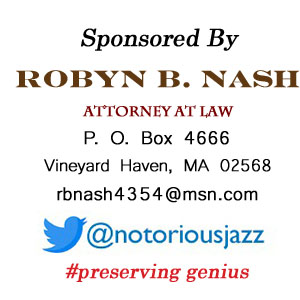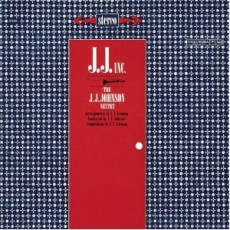
notoriously Classic
You Go To My Head / Lee Morgan – The Gigolo ♦ Miles / Miles Davis – Milestones ♦ In Walked Bud / Thelonious Monk – Misterioso ♦ Fatback / J.J. Johnson – J.J. Inc. ♦ Line For Lyons / Billy Taylor – Dr. T ♦ Mode For Joe / Joe Henderson – Mode For Joe ♦ Stolen Moments / Oliver Nelson – The Blues And The Abstract Truth ♦ Song For My Father / Horace Silver – Song For My Father ♦ A Foggy Day / Red Garland – A Garland Of Red
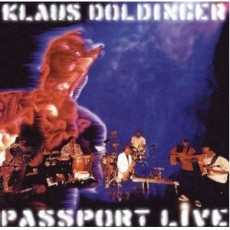
Daily Dose Of Jazz…
Klaus Doldinger was born on May 12, 1936 in Berlin, Germany. By age eleven he entered a Dusseldorf conservatory originally studying piano and then clarinet, graduating in 1957. During his student years, he gained professional performing experience in 1953 with the German Dixieland band The Feetwarmers, recording with them in 1955. Later that same year he founded Oscar’s Trio, modeled on Oscar Peterson’s work.
During the 1960s Klaus worked as a tenor saxophonist, working with visiting American jazz musicians and recording in his own right. Doldinger is perhaps best known for his film scores to the acclaimed German U-boat film Das Boot and The Never Ending Story. He was an honored recipient of the Bavarian Film Awards in 1997.
Doldinger created a recurring jazz project Passport in 1971 that mirrors Weather Report and still enjoys huge success in Germany. He has worked with Johnny Griffin, Brian Auger, Ernst Stroer, Pete York and Michael Hornek among others. He continues to perform, compose and tour.
More Posts: saxophone
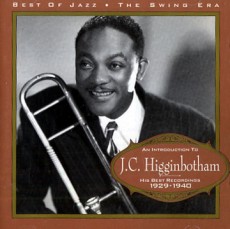
Daily Dose Of Jazz…
J. C. (Jack) Higginbotham was born on May 11, 1906 in Social Circle, Georgia and learned to play trombone in his youth. He made his start in jazz playing with territory bands in the Midwest and was heard at his best while a member of the Luis Russell Orchestra from 1928 to ’31. He would go on to play with Benny Carter’s, Red Allen’s and Fletcher Henderson’s big band during the swing era.
J. C. played with Louis Armstrong in the late Thirties to the end of the decade, played for a long period in the forties with his ideal partner Red Allen, and then disappeared from the scene for several years. By 1947 he was leading his own groups.
Higginbotham led several bands in the Fifties in Boston and Cleveland, appeared regularly at the Metropole in New York between 1956 and 1959, and led his own Dixieland band there in the Sixties. He went on his first European tour with Sammy Price, appearing in Scandinavia, and worked again briefly in 1964 with Louis Armstrong.
A robust and swinging trombonist he recorded extensively both as a sideman and as a leader. He is considered to be a vital player of the swing trombone and his strong, raucous sound and wild outbreaks are legendary. J. C. Higginbotham, who contributed to the acceptance of the trombone as a melodically capable jazz instrument, died on May 26, 1973 in New York.
More Posts: trombone
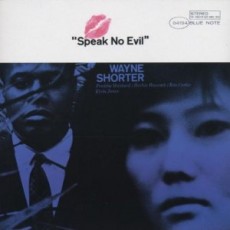
Requisites
Speak No Evil: This 1964 release by Wayne Shorter has been considered as one of his finer works and a “must have” for the serious collector. As he was in Miles Davis’ band at the time, this album did not receive the welcome it so deserved.
Personnel: Wayne Shorter – tenor saxophone, Freddie Hubbard – trumpet, Herbie Hancock – piano, Ron Carter – bass, Elvin Jones – drums
Recorded by: Rudy Van Gelder
Record Date: Blue Note – December 24, 1964
Cover: Photograph of Wayne Shorter and his first wife, Teruka Nakagami
Songs: Witch Hunt, Fee-Fi-Fo-Fum, Dance Cadaverous, Speak No Evil, Infant Eyes, Wild Flower
More Posts: collectible,saxophone
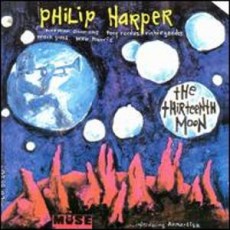
Daily Dose Of Jazz…
Philip Harper was born May 10, 1965 in Baltimore, Maryland but grew up in Atlanta, Georgia. He started played trumpet when he was ten under the tutelage of his brother Winard and then went on study at the Hartt School of Music with Jackie McLean.
At the age of 18 Philip moved to New York, where he started working and recording extensively, with such musicians as Little Jimmy Scott, Jimmy McGriff, Betty Carter, Etta Jones, Harry “Sweets” Edison, Bill Cosby and Cedar Walton. He became a member of Art Blakey’s Jazz Messengers, Charles Mingus’ Big Band and from 1988 to 1993 was an integral part of The Harper Brothers.
His discography includes The Harper Brothers, You Can Hide Inside The Music, Remembrance: Live at the Village Vanguard and Artistry, along with his two releases as a leader Soulful Sin and The Thirteenth Moon in addition to several live recordings with The Jazz Messengers. Trumpeter Philip Harper continues to perform and tour worldwide with various groups in conjunction to teaching and conducting workshops in several conservatories in Europe.
More Posts: trumpet





